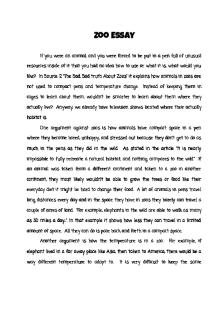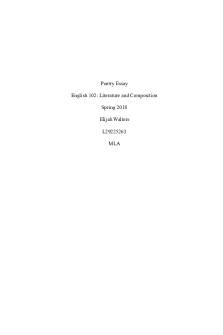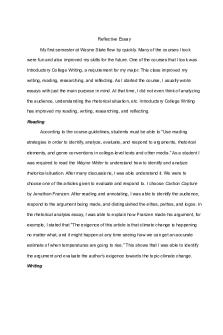PACI103 Essay - Grade: B PDF

| Title | PACI103 Essay - Grade: B |
|---|---|
| Course | Introduction to Tongan Culture |
| Institution | University of Otago |
| Pages | 5 |
| File Size | 90.8 KB |
| File Type | |
| Total Downloads | 18 |
| Total Views | 135 |
Summary
Discuss the importance of Tongan Core Values in the lives of the Tongan people...
Description
Discuss the importance of Tongan Core Values in the lives of the Tongan people
Tonga is a group of islands in the South Pacific Ocean, officially known as Kingdom of Tonga. They are part of the countries and cultures that make up Polynesia. For hundreds of years the island has been a big influence politically and culturally throughout all of Polynesia. The modern-day perception of Polynesian peoples and their cultures would not exist without Tonga. Generosity and kindness, among other things, are staple concepts within the Kingdom, which are taught and perpetuated through four core values. these values (anga fakatonga) are key concepts that Tongan society live by: Faka’apaàpa (Respect), Loto to (Humility), Tauhi vahoà (Reciprocity) and Mamahií (Loyalty). Although, throughout the years the Tongan culture has undergone changes; however, these four core values have always and will continue to solidify the culture, values, and diaspora of Tonga. In this essay I will define these four core values and explain their significance to the identity and social structure of Tonga and it’s people. I will demonstrate that through examples of day to day, as well as significant cultural events where each of these concepts are used.
Faka’apaàpa (Respect) is everything in the Tongan culture. It is shown in every aspect of their lives from within families, celebrations, funerals, rituals, the social structure, etc. Within a family, context, your status is determined by your age, seniority, gender differences and family structure. No two people in the same kinship can hold the same rank. The lowest ranked is expected to show respect (Faka’apaàpa) and unwavering obedience to those higher ranked. It is unacceptable to show any form of disrespect (Taungutu) to the elderly. In celebrations (weddings, birthdays, etc), rituals are conducted by members of the fāmili and kāinga based on their relationships in the community and within themselves. These rituals frequently involve gift giving exchanges where again individuals and families have roles and obligations to do during these celebrations. Rituals often included gift giving exchanges where individuals and families have duties and obligations to play during celebrations. This is conducted by people according to their relative ranks within the family. The reciprocal roles in the fahu, fā'ehuki and Liongi positions are most clearly shown during cultural events (birthdays, weddings, funerals, and cultural celebrations). The person and their families in this position are recognised and entitled to everything (Rutherford, 1996). The social structure of Tonga is ranked as follows: Monarchy (Ko ‘ene’ Afiomo hono fale), Nobility (Hou’eiki nōpele), Elite (Kāinga he ngaahi tu’unga ,mā’olunga) and then the
Commoners (Kainanga ‘o e fonua) (Kalavite, 2010). The monarchy is the king or queen (The Royal Family). The leaders/rulers of the country commend the most respect. When talked upon from lower rankings different variations of words (Lea faka-Tonga) are used to emphasize their superiority. The use of Lea faka-Tonga (Tongan language) depends on its purpose and situation. Vocabulary levels are used according to the rank and the status of the speaker and the listener(s). The main levels are, Lea fakatu'I (Regal level), Lea fakahouhou'eiki (Chiefly level), Lea fakamatāpule (Polite level), Lea faka'aki'akimui (special self-derogatory level or humble), Lea tavale (Everyday conversational level) & Lea 'ita (Abusive language level) (Taumoeolau, 2012). Respect is widely shown throughout the Tongan society and shapes who they are.
Mamahií moà, in English translates to loyalty, which is an important aspect in all cultures, whether it is Māori, European, Asian, etc. The meaning of loyalty is universal, but the manner in which it is shown differs from culture to culture. Loyalty means lawful faithfulness. In broader terms it means to be steadfast to a person, cause, or to a country. It is a value entwined and closely related to many other cultural staples. Loyalty relates to compassion, sacrifice, and support to a cause; similarly, In Tongan culture, they live by the four core values. These four values complement each other in that same way. For example, Faka’apaàpa (Respect) compliments Mamahií moà (Loyalty). Lower ranked members of a kinship are expected to show respect and obedience to those higher ranked. By doing so they are abiding by the rules of the community and showing loyalty to their kinship/community. Loyalty is not something that should be expected. It should be shown by default. Loyalty is a widely spoken term in all families. Even for his elders, friends, relatives or country, a loyal person is ready to sacrifice his own life. Tongan people do this by default day to day. They could be another country away from home, but they will continue to provide for their families in anyways they can. This describes the typical Tongan mindset; familial connections are so strong that distance does not affect bonds between each other so it is like they are still together no matter how far they can be from home. They cannot be deviated off their path either from bribes or threats. Their Christianity keeps them true to themselves and continue to stand strong to any force that may try to break them. This is true definition of loyalty for a Tongan citizen.
A quality that is undervalued and often not touched on, but is just as important as Faka’apaàpa and Mamahiì moà is Loto to (Humility). It is something that is heavily mentioned in religious texts and may seem somewhat old-fashioned, but it is a quality that today is completely necessary. Humility is defined as, ‘the feeling or attitude that you have no special importance that makes you better than others or having a lack of pride’ (Gloveworx, 2021). At first, humility appears like a negative quality rather than a strength, almost like a sign of weakness. It is a kind of value that can get a person far in life. In the Tongan culture, humility is a core value that will not only make themselves a better person but rather everyone in the village/country. Like every culture, it is displayed the same and rather than expected, is done by default. A person who doesn’t display Loto to is arrogant. He is an individual who only believes in himself and sees himself as better and higher ranked than others. Which in terms of Tongan culture is not only seen as shameful, but disgraceful to one’s family/kinship and peers around. An arrogant person can't improve himself because he doesn't recognise his shortcomings and can never have a growth mindset. But it is not a bad thing to boast a little bit just not too the point where it begins to disgrace others. Pride robs the individual of his ability.
The Pacific culture has different meanings of certain values. Tauhi vahoà (Reciprocity) is not an exchange in a Pacific cultural setting, however reciprocity and exchange are usually considered as providing mutual benefit within a community. There are good intentions behind the distinguishing between reciprocity and exchange. The reason for it is self-interest, in order to maximise one's own profit. In the Pacific, motivation for reciprocity is the interest of the other party and the intention is to enhance the relationship's advantage. Pacific cultures combine reciprocity with generosity and use reciprocity to sustain and strengthen ties with the partner. Therefore, Tongan families are close with other families that aren’t necessarily blood related. Due to Tauhi vahoà. Reciprocity is also seen as a means to maintain the dignity and respect of oneself which is realised by the Tongan culture in a circle of donation. The donation of gifts constitutes the basis for worthful relationships to give, receive and return a present. The partnership is initiated by the first obligation to make a donation/give a gift. The second requirement to receive a donation that lays forth an attempt of friendship but if rejected then nothing will happen. The third requirement to return a donation that upholds and simultaneously develops the relationship between the giver and the recipient. The system of
donation motivates people to work hard, just as everyone they receive must. To abstain would be not to give that which implies to prevent reciprocity by default. In the absence of reciprocal treatment, there will be a loss of dignity and Faka’apaàpa for themselves.
Fofola e fala kae talanoa e kāinga: The concepts and principles in anga faka-tonga (Tongan Culture) protect and strengthen a family are highlighted in the Tongan Conceptual Framework. Faka’apaàpa, Mamahiì moà, Loto to and Tauhi vahoà are the concepts and principles that enable families of Tongan to take responsibility for the prevention and end of violence in families. When concepts and principles are correctly applied, violent behaviour is changed and well-being is recovered and the family bonds are stronger and brighter than ever before.
References Rutherford, N. (1966). Shirley Baker and the king of Tonga. Auckland, New Zealand: Noel Rutherford and Pasifika Press. Kalavite, T. 2010. Fonogna 'a Fakahalafononga: Tongan Students' Journey to Academic Achievement in New Zealand Tertiary Education. PhD Thesis, University of Waikato, Hamilton, New Zealand. (Chapter 2:pp. 21-33 and pp. 43-50). Taumoefolau, Melenaite (2012). Tongan ways of talking, The Journal of the Polynesian Society 121:4, pp, 327-37. Gloveworx. 2021. The Importance of Humility. Gloeworx. [ONLINE] Available at: https://www.gloveworx.com/blog/importance-humility/....
Similar Free PDFs

PACI103 Essay - Grade: B
- 5 Pages

Rogerian Essay - Grade: B
- 2 Pages

Zoo Essay - Grade: B+
- 2 Pages

Causation Essay - Grade: B
- 4 Pages

Final Essay - Grade: B+
- 12 Pages

Propaganda Essay - Grade: b
- 4 Pages

Poetry Essay - Grade: B
- 5 Pages

Galileo Essay - Grade: B+
- 6 Pages

Fiction Essay - Grade: B
- 7 Pages

EPQ Essay - Grade: B+
- 10 Pages

Law essay - Grade: B
- 9 Pages

Persuasive Essay - Grade: B
- 3 Pages

Evicted Essay - Grade: B+
- 3 Pages

Charities essay - Grade: B+
- 13 Pages

Reflective Essay - Grade: B
- 4 Pages

Analysis essay - Grade: B+
- 3 Pages
Popular Institutions
- Tinajero National High School - Annex
- Politeknik Caltex Riau
- Yokohama City University
- SGT University
- University of Al-Qadisiyah
- Divine Word College of Vigan
- Techniek College Rotterdam
- Universidade de Santiago
- Universiti Teknologi MARA Cawangan Johor Kampus Pasir Gudang
- Poltekkes Kemenkes Yogyakarta
- Baguio City National High School
- Colegio san marcos
- preparatoria uno
- Centro de Bachillerato Tecnológico Industrial y de Servicios No. 107
- Dalian Maritime University
- Quang Trung Secondary School
- Colegio Tecnológico en Informática
- Corporación Regional de Educación Superior
- Grupo CEDVA
- Dar Al Uloom University
- Centro de Estudios Preuniversitarios de la Universidad Nacional de Ingeniería
- 上智大学
- Aakash International School, Nuna Majara
- San Felipe Neri Catholic School
- Kang Chiao International School - New Taipei City
- Misamis Occidental National High School
- Institución Educativa Escuela Normal Juan Ladrilleros
- Kolehiyo ng Pantukan
- Batanes State College
- Instituto Continental
- Sekolah Menengah Kejuruan Kesehatan Kaltara (Tarakan)
- Colegio de La Inmaculada Concepcion - Cebu